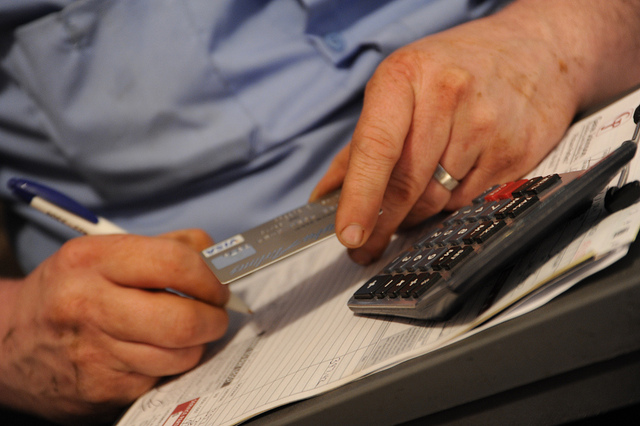This post was adapted from Rental Report: How much Apartment You can Afford. You can find the original post, here.
Budgeting for a new apartment is terrifying if it’s your first time renting an apartment, but with these tips, it won’t seem so scary anymore.
You’ve probably heard of the 30 percent rule, which says that, in general, your rent should be no more than 30 percent of your gross income.
So for example, if you make $60,000/year, you can afford $1,500/month for rent. This is a good rule of thumb to start with, but there are several more pieces to the rental budget puzzle than just base rent price.
Parking – It is safe to assume that a DC apartment building will charge extra for on-site parking. So if you plan to have a car, you will need to budget anywhere from $50-$150 or more for parking depending on the area.
Transportation – Of course, transportation costs are another big piece of the pie. Whether or not you are driving to work every day or using public transportation, you will need to consider the cost from your new home to work or school. If you are using Metro as your primary transportation, you can determine your daily fare by going to their Stations Page and selecting your starting station, then scroll to your final destination. It will give you Peak and Off Peak fares as well as general transport time. If you are driving to work, don’t forget to factor in fuel, tolls and parking at the office, if necessary.
Utilities – Most likely, your new apartment will not include utilities. Depending on the unit, you will need to pay all or a portion of electric, gas, water, and trash. Some units will charge a flat fee, while others will be individually metered. Ask when looking at an apartment what the general utility cost is for your size unit. Most likely, you can expect to pay around $100-$200 per months for general utilities. And if you are like most people these days, you will need cable and Internet for another $100-$150 per month.
Laundry – Does your apartment have a washer and dryer? If not, don’t forget those quarters (or these days many building have prepaid cards for laundry). At around $3 per load, the laundry expense can add up quickly. Many newer apartments do have in-unit washer and dryers, so depending on the other features and amenities included in the price, a newer place may be worth the extra cash.
Pets – If you are bringing Patches or Fido along, it could cost you anywhere from $25-50 per month or more. Some places charge a flat fee or deposit up front, in lieu of pet rent, but others charge it in addition to pet rent.
Gym – Now, here’s where you might actually get a little savings. If you have a gym in your building, you can probably skip the gym membership. Depending on your preferences, most apartment gyms have a few pieces of cardio equipment like a treadmill, elliptical and bike. They also have free weights and other strength equipment. Some buildings may even offer some on-site Yoga classes for residents. Gym memberships can run from $10-$100/month so that on-site gym could keep a little extra cash in your pocket every month.
Using our $1,500 rent per month example, here is a sample budget:
Parking: $50
Transportation: $100
Utilities and Cable: $250
Laundry: $27
Pet: $25
Total: $452
That brings your total housing budget up to about 39 percent of gross income using the $60,000 example.
Keep in mind, a $1,500 budget for DC can be low. While there are definitely deals out for a lower budget, you will likely pay more for something else like transportation. If a $1,500 budget is out of your range, you may need to consider a roommate to take advantage of a great location while keeping costs down.
Next Steps
So, what happens after you’ve created your budget?
Well, if you haven’t moved in yet, you could take a dry run and see if you can live comfortably within your budget constraints. If you can’t live comfortably during your dry run, you still have time to tweak your budget before you find an apartment or move in.
You may also want to consider getting a roommate or several to help split up your overall rent.
You can use tools like Mint to help you keep track of your expenses and budgets, which will make budgeting even easier or you can ask whomever does your taxes to help set up a budget for you.




